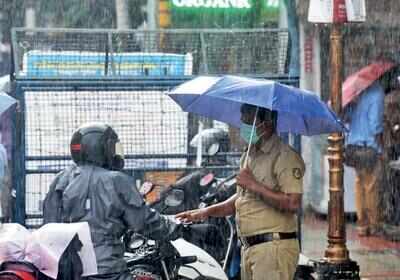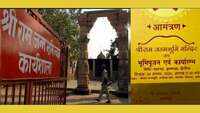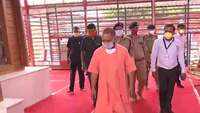
THIRUVANANTHAPURAM: Police have been asked to take over the full-fledged management of containment zones as it has been observed that 64% of those infected since July 15 in the state are from primary contacts outside family.
As per the analysis of the figures compiled by the police, accessed by TOI, the number of those getting Covid-19 infection from outside their houses rose steadily from 48% of the total infected on July 20 to 82% on August 2. At the same time, only 5% of the total received the virus from the primary contacts within their family in this period. “These figures clearly show that the people are getting infected by Covid-19 outside their houses which is on the rise and have reached an alarming figure. This means that there should be some coercive mechanism by which people inside the containment zones stay inside their houses,” a senior police officer said.
But all defences apart, a section of police officers has expressed strong concerns about police taking up the task, citing high risk of spread of infection within the force.
The analysis shows that out of the 17,832 cases reported in the state since mid-July, 11,479 (64%) got infected from primary contacts outside their families while 816 (5%) from within their family. The figures also show that the contacts of 1,077 patients (6%) were untraceable. While all the other sources of infection are minuscule figures, the primary contacts outside family have become a major cause of concern in the state.
As per the action plan prepared by the police, even within the containment zones and the clusters, police will focus mainly on vegetable markets, fish markets, migrant population, ports, harbours and locations around hospitals so as to ensure that there is no repeated occurrence of cluster spread. Police are primarily targeting Thiruvananthapuram district where the number of Covid-19 patients is very high. As per the plan, Thiruvananthapuram could be controlled in a time period between four days to one week. Once the spread of infection in the district comes under control, the remaining districts also will fall in line, sources said.
However, police are treading a cautious line even when taking over the responsibility as there has been criticism from outside and within the force that these all are not part of the police’s job. Another major issue is the strength of the police force. “On a given day, leaving all those who are out of service, at the best we may have a force of 30,000 to 35,000 officers on the field across the state. Also, unlike the medical practitioners, police are not trained to ensure that they do not get infected. If one policeman is infected, several of his colleagues are in danger and will have to be placed on quarantine, which will significantly hit the force strength,” a top police officer said on conditions of anonymity.
Earlier, the state police chief himself had instructed that those above 50 years of age and those who are suffering from comorbidities should be excluded from Covid-19 duty. “Even those off the field are put under risk when they are exposed to a policeman on active Covid-19 duty like contact tracing,” sources added.
As per the analysis of the figures compiled by the police, accessed by TOI, the number of those getting Covid-19 infection from outside their houses rose steadily from 48% of the total infected on July 20 to 82% on August 2. At the same time, only 5% of the total received the virus from the primary contacts within their family in this period. “These figures clearly show that the people are getting infected by Covid-19 outside their houses which is on the rise and have reached an alarming figure. This means that there should be some coercive mechanism by which people inside the containment zones stay inside their houses,” a senior police officer said.
But all defences apart, a section of police officers has expressed strong concerns about police taking up the task, citing high risk of spread of infection within the force.
The analysis shows that out of the 17,832 cases reported in the state since mid-July, 11,479 (64%) got infected from primary contacts outside their families while 816 (5%) from within their family. The figures also show that the contacts of 1,077 patients (6%) were untraceable. While all the other sources of infection are minuscule figures, the primary contacts outside family have become a major cause of concern in the state.
As per the action plan prepared by the police, even within the containment zones and the clusters, police will focus mainly on vegetable markets, fish markets, migrant population, ports, harbours and locations around hospitals so as to ensure that there is no repeated occurrence of cluster spread. Police are primarily targeting Thiruvananthapuram district where the number of Covid-19 patients is very high. As per the plan, Thiruvananthapuram could be controlled in a time period between four days to one week. Once the spread of infection in the district comes under control, the remaining districts also will fall in line, sources said.
However, police are treading a cautious line even when taking over the responsibility as there has been criticism from outside and within the force that these all are not part of the police’s job. Another major issue is the strength of the police force. “On a given day, leaving all those who are out of service, at the best we may have a force of 30,000 to 35,000 officers on the field across the state. Also, unlike the medical practitioners, police are not trained to ensure that they do not get infected. If one policeman is infected, several of his colleagues are in danger and will have to be placed on quarantine, which will significantly hit the force strength,” a top police officer said on conditions of anonymity.
Earlier, the state police chief himself had instructed that those above 50 years of age and those who are suffering from comorbidities should be excluded from Covid-19 duty. “Even those off the field are put under risk when they are exposed to a policeman on active Covid-19 duty like contact tracing,” sources added.

Coronavirus outbreak
Trending Topics
LATEST VIDEOS
City
 Watch: CM Yogi lights earthen lamps at residence as part of 'deepotsav'
Watch: CM Yogi lights earthen lamps at residence as part of 'deepotsav'  'Wanted to teach Hindus a lesson' using political power, ex-AAP councillor Tahir Hussain confesses
'Wanted to teach Hindus a lesson' using political power, ex-AAP councillor Tahir Hussain confesses  48-hour countdown to Ram Mandir Bhumi Pujan in Ayodhya; invitation cards sent
48-hour countdown to Ram Mandir Bhumi Pujan in Ayodhya; invitation cards sent  UP CM Yogi Adityanath takes stock of preparations in Ayodhya ahead of Ram Temple bhumi pujan ceremony
UP CM Yogi Adityanath takes stock of preparations in Ayodhya ahead of Ram Temple bhumi pujan ceremony
More from TOI
Navbharat Times
Featured Today in Travel
Quick Links
Kerala Coronavirus Helpline NumberHaryana Coronavirus Helpline NumberUP Coronavirus Helpline NumberBareilly NewsBhopal NewsCoronavirus in DelhiCoronavirus in HyderabadCoronavirus in IndiaCoronavirus symptomsCoronavirusRajasthan Coronavirus Helpline NumberAditya ThackerayShiv SenaFire in MumbaiAP Coronavirus Helpline NumberArvind KejriwalJammu Kashmir Coronavirus Helpline NumberSrinagar encounter
Get the app



